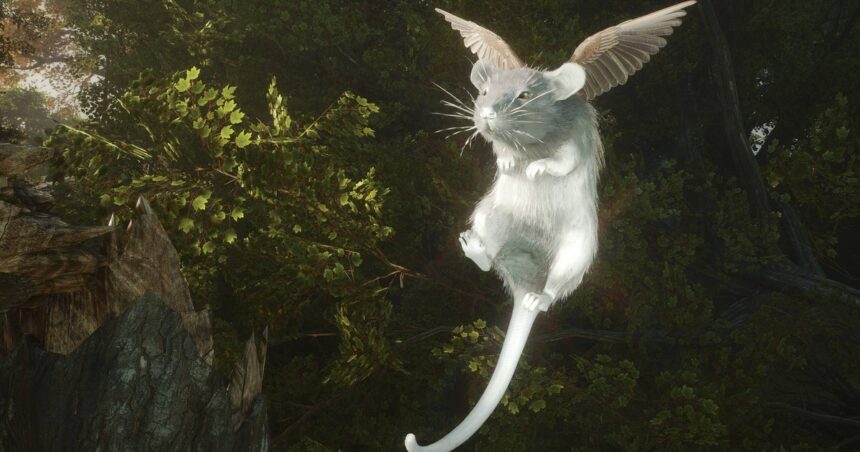As you’re likely aware, we’re living in a sort of live service hell. Hell for gamers as the desperate claws of releases new and old clutch at what little spare time and money they have. It’s hell too for the developers, who pour their time and passion into a game hoping that it has a strong enough hook to snatch people from industry giants. Soulframe is walking headfirst into this fiery nightmare.
Eurogamer was able to sit down and talk to Soulframe creative director Geoff Crookes how and why Soulframe will survive where other games have fallen, to which he responded: “I don’t know. Frankly, I don’t know.”
“It’s funny, you would think ten years into Warframe we’d have swagger, confidence. We still feel scrappy and that we’re surviving by the skin of our teeth.” This begs the question, why? Crookes believes this uncertainty lies at the heart of the Digital Extremes story:
“I’ve been with DE for 23 years, and we’ve kind of fought to survive in the years leading up to Warframe’s launch. Even when Warframe launched, those first few years were great, but it took a little bit to find the hook. We still annually think of our updates with that pressure. The team grew, we have an incredible team of developers that we love very much, and there’s a responsibility to not rest on our laurels.”
When it comes to Soulframe, that sentiment still remains intact. A shared DNA of caution and anxiety that colours the way in which this new game is developed.
“When it comes to Soulframe, we’re still of that mind” elaborated Crookes. “A lot of studios right now would do Early Access! They’d have a kind of finished game, put it out, and make people pay for it. Then they’d do what we’re doing with Preludes. We’re deliberately being slow and thoughtful, to build engagement so that people can care for the product we’re making.
“So there’s never confidence, and I never want to feel confident. It’s the faith, trust, and hope that we’ve made something we’re passionate about and we wanted to make. That’s what we did with Warframe, and we’ll also nurture and grow a community at the same time. So I do think we’re different in our approach, even with the industry being what it’s like right now.”
Warframe itself has inspired a selection of similar games in recent years, none of which have managed to survive the current market. The First Descendant exploded onto Steam with a peak of roughly 250,000 players, only to dribble down to the low thousands. Airship Syndicate’s Wayfinder, a game published by Digital Extremes before that department was shuttered, underwent a drastic redesign following a shaky launch. The formula Digital Extremes created doesn’t appear to be replicable, but why?
“I don’t have a good business answer for that. Y’know, DE never intended to set a standard by any means, or an expectation for these games” mused Crookes. “Even when we started Warframe, we didn’t approach it with product things in mine. What’s the content churn, what’s the story going to be… All we thought about was taking a seed of things that excited us, and expanded it out. We didn’t even think of it as a free-to-play thing, and we didn’t really think about the business side of it.
“So we see that people try to recreate and see we influence some decisions in the industry, but we kind of keep our heads down and pre-occupy ourselves with what our community wants.”
The seed metaphor is apt, given the direction Digital Extremes has taken with Soulframe. The demo revealed at this year’s Tennocon is all about planting and nurturing growth in otherwise poisoned soil. The game is clearly focused on doing something new and distinct, rather than following convention.
“When Steve and I talked about committing to this game, we had to find something that would hold our interest to build on for years if we were going to do this the right way” concludes Crookes. “So, in terms of fantasy, I didn’t want to just do a fantasy tropey thing, so we needed to find the core conflict for what we wanted to do. It’s not a radical idea, what this conflict is. But there was the foundation in early romanticism, especially the visualisation of the world, that played on these themes.
“But also in combination to that, it speaks to the age of Steve and I, we’re both getting up there. And for the two of us, it’s hard not to get cynical about the world and where it’s going. For us, maybe it’s therapy, and maybe it’s a way to bring people in. But it’s also a way to make this game that has a hopeful, healing goal to it. One that can offer some optimism.”





